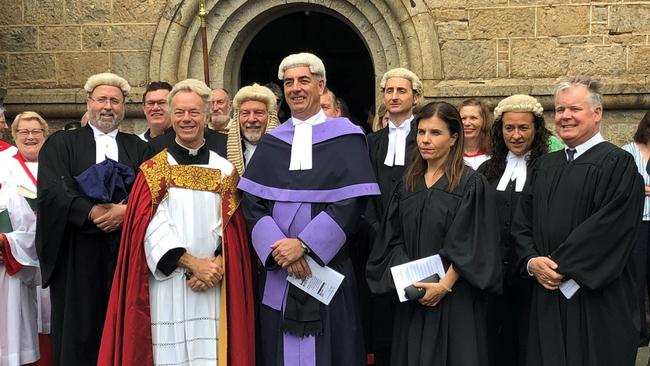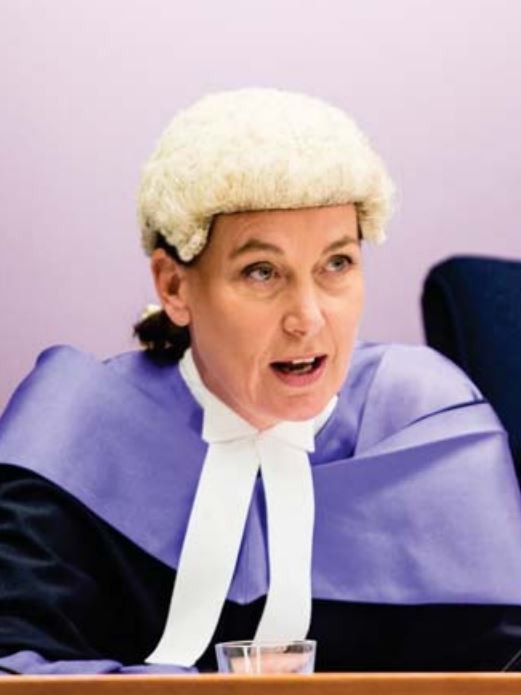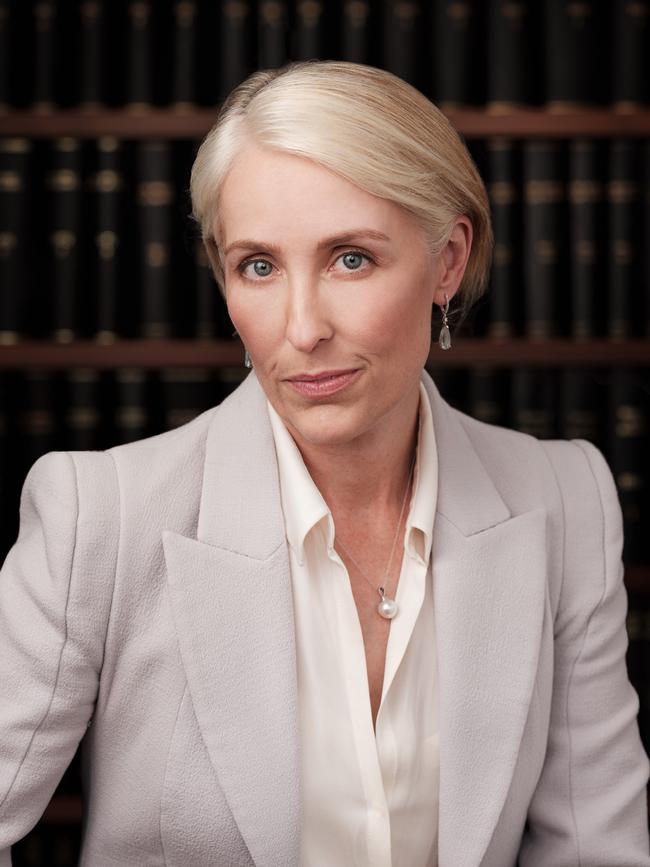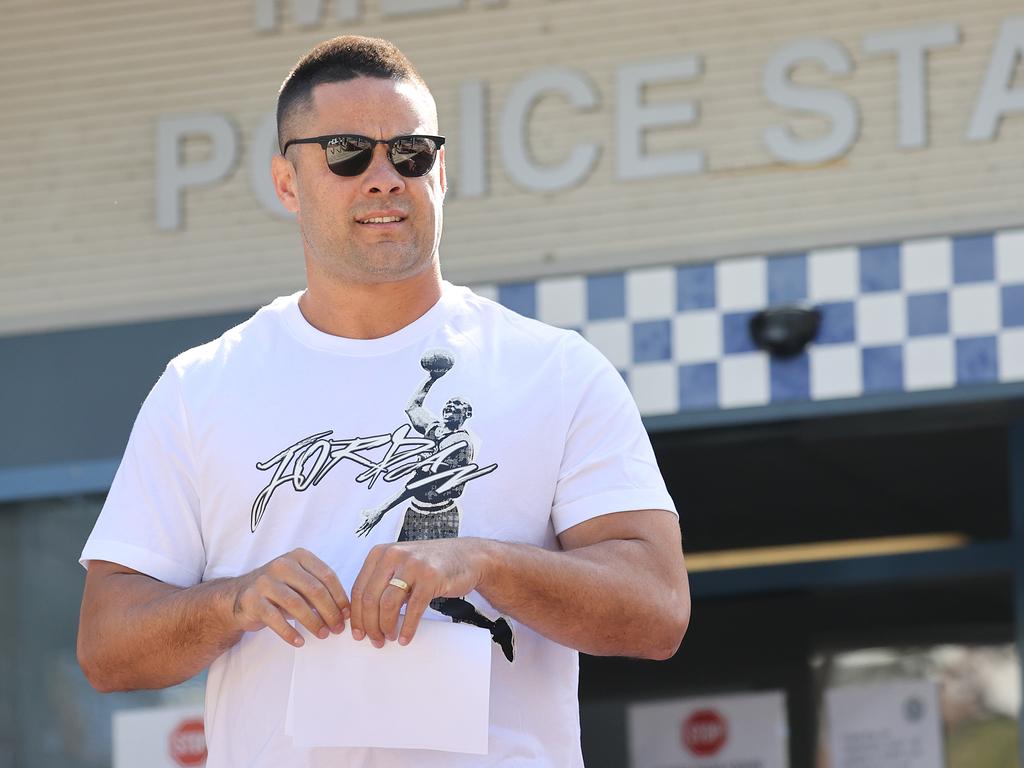NSW DPP Sally Dowling in another private complaint to chief judge
Sally Dowling SC launched a scathing attack on a NSW District Court judge, in another extraordinary secret complaint to the court’s chief judge written in the middle of criminal proceedings.

The chief prosecutor of NSW launched a scathing critique of District Court judge Sean Grant, in another extraordinary private complaint to the court’s chief judge written in the middle of criminal proceedings.
Sally Dowling SC made the complaint to then-chief judge Derek Price late last year, after Judge Grant requested the Crown ask an Indigenous complainant if she was sure she wished to proceed to trial.
The complaint, which was made without the knowledge of the defence and was critical of Judge Grant, said there was “no basis … for His Honour to have any concern as to the willingness of the complainant to proceed”.
A spokesperson for the Office of the Director of Public Prosecutions has told The Australian Ms Dowling “absolutely rejects any suggestion that this communication was inappropriate”.
However, this follows District Court judge Penelope Wass last week formally reporting Ms Dowling to the state’s legal watchdog for similar conduct.
The Australian last week revealed Judge Wass had lodged a complaint with the Office of the NSW Legal Services Commissioner after Ms Dowling went over her head to NSW chief judge Sarah Huggett in the middle of a sexual assault prosecution.

This all comes amid growing tension between Ms Dowling and the judiciary, after five judges complained about processes governing rape complaints, with some believing a pattern is emerging in which prosecutors prefer to take a “believe the victim” stance and push a matter before a jury, rather than dropping impossible cases.
Ms Dowling, in addition to the private complaints made to the chief judge, has filed formal grievances against at least three sitting judges with the state’s judicial commission.
One of those formal grievances was against Judge Grant, after he accused her of the most blatant “judge shopping” he had seen in 35 years in the law.
In March last year, a separate matter came before Judge Grant which involved two Indigenous women with “various vulnerabilities” and were “cousins and had lived together as sisters”.
According to a judgment, obtained by The Australian, Judge Grant took issue with the “carelessly drafted” indictment by the Crown, which he described as “sloppy, to say the least”.
Judge Grant said due to the “strong familial ties” of Indigenous Australians “one needs to be cognisant of cultural context”.
“As a result of my concerns about the matter proceeding, where one cousin was pitted against another, I requested the solicitor with the carriage of the matter to confer with the complainant to see if the complainant wanted the matter to proceed,” he said.
“I was engaging in trial management as a regional judge should.”
However, shortly after he raised this with the Crown prosecutor, Ms Dowling flagged Judge Grant with the chief judge.
“Director Dowling SC on 5 April 2023 wrote to Justice Price AO, Chief Judge of the District Court,” Judge Grant said. “The director was critical of my conduct. In part, her letter reads ‘ … there was no basis on the face of the indictment or the Crown case statement for his Honour to have any concern as to the willingness of the complainant to proceed’.”
Judge Grant said he “disagreed” with Ms Dowling’s observations, and the Crown’s case demonstrated a “strong bond between the complainant and the accused”.

“The director failed to take into account the cultural context which loomed large from any reading, even a cursory one, of the Crown case statement,” he said.
“The Crown case statement demonstrated the use of drugs and a misunderstanding between two women as a result of the use of drugs and a resulting short, violent episode, which could have been dealt with in the Local Court. The Crown case statement cried out for trial management, management that is incumbent upon a judge, not the director. The director wrote, ‘Not only did His Honour’s direction to my staff involve re-conferencing a vulnerable witness, his Honour’s query also invited them to breach my privilege’.”
Judge Grant said the complainant was a “vulnerable witness, as was the accused”.
“Great care needed to be taken in relation to the future management of the trial and the culturally sensitive nature of the trial. That is the very reason why I raised the issues about their relationship and vulnerability when I did,” he said.
“It was appropriate for the complainant to have input into the future carriage of the matter. I make no apologies for my intervention. I fail to see how a judge engaging in trial management invites the director’s staff to breach her privilege. With respect to the director, I disagree that there was any likelihood of her privilege being breached.”
A spokesperson for the ODPP said “there is a longstanding convention observed by the heads of each court that there should be open communication with the DPP as the head of the state’s prosecution agency”.
“Defence practitioners can and do raise concerns with the head of each court through the Bar Association or the Law Society,“ the spokesperson said.
“It’s a matter for the chief judge, or the relevant head of court, to determine if, when or how issues communicated by the DPP or other stakeholders are raised with individual judges.”
The matter was eventually withdrawn by the ODPP on September 27 last year after the “complainant could not be found”.
Judge Grant said: “It is unfortunate that it has taken the director over six months to give consideration to this matter when she was put on notice on March 3 2023 when I raised the issue as to whether the matter should proceed due to the trial involving Aboriginal women, who are cousins, with various vulnerabilities and the overall cultural context.”





